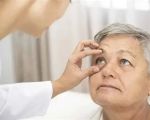
- understanding-contact-lens-safety-basics
- how-to-clean-and-store-your-contact-lenses-properly
- wearing-habits-that-can-keep-your-eyes-healthy
- signs-your-eyes-need-a-break-or-medical-attention
- real-stories-of-contact-lens-misuse-and-lessons-learned
- finding-the-right-lenses-and-care-products
1. Understanding Contact Lens Safety Basics
Wearing contact lenses offers convenience and clear vision, but it also demands responsibility. One of the most important tips for wearing contact lenses safely is understanding how they interact with your eyes. Contacts sit directly on your cornea, so improper use can lead to irritation, dryness, or even serious infections like keratitis.
1.1 Know What Type You’re Using
Daily, bi-weekly, and monthly lenses all have different handling needs. Mixing up their usage can lead to bacterial build-up and eye strain. Always follow your eye doctor’s instructions on the lifespan and care of your lenses.
1.2 Follow Your Eye Doctor’s Advice
Self-diagnosing eye issues is risky. Regular check-ups ensure your prescription is up-to-date and your eyes are handling the lenses well. Over-wearing or using the wrong type of contact lens is one of the leading causes of complications, especially among first-time users.
2. How to Clean and Store Your Contact Lenses Properly
2.1 Why Cleanliness is Non-Negotiable
Hygiene is at the heart of contact lens safety. Wash your hands thoroughly before touching your lenses. Avoid using tap water to rinse or store them—it can contain microbes that are harmful to the eyes. Use only doctor-approved saline or cleaning solution.
2.2 Storage Best Practices
Replace your contact lens case at least every three months, and never reuse old solution. Leaving lenses to soak in yesterday’s fluid can breed bacteria. Always use fresh solution, even if you’re just storing them overnight.
2.3 No Shortcuts
Rubbing your lenses, even with a “no-rub” solution, increases effectiveness. Take the few extra seconds to rub and rinse both sides of each lens. It’s a small step that significantly reduces the risk of infection.
3. Wearing Habits That Can Keep Your Eyes Healthy
3.1 Respect the Wearing Schedule
One of the most overlooked tips for wearing contact lenses safely is sticking to the schedule. Never wear lenses longer than recommended. If they’re daily lenses, discard them every night. Extending use can dry out your eyes and damage the cornea.
3.2 Avoid Sleeping in Contacts
Even lenses approved for overnight wear can reduce oxygen supply to the eye, leading to complications over time. Unless prescribed by a doctor, take them out before bed to give your eyes a rest.
3.3 Watch Out for Environmental Triggers
Long hours in air-conditioned rooms or screen time can worsen dryness. Carry rewetting drops and give your eyes regular breaks. If you’re going to swim, use daily disposables and goggles, or skip lenses entirely.
4. Signs Your Eyes Need a Break or Medical Attention
4.1 Red Flags You Shouldn’t Ignore
Burning, excessive watering, blurred vision, or red eyes are signs your contacts aren’t working well for you. Remove your lenses immediately if you experience these symptoms and consult a specialist.
4.2 When It’s More Than Just Discomfort
Severe pain, light sensitivity, or discharge may indicate an infection like corneal ulcer or conjunctivitis. These conditions need professional treatment. Never try to “wait it out” with over-the-counter drops.
4.3 Build Recovery Time Into Your Routine
Occasional breaks from contact lens wear can help your eyes recover from strain. Switching to glasses for a day or two each week can make a noticeable difference in comfort and long-term eye health.
5. Real Stories of Contact Lens Misuse and Lessons Learned
5.1 A College Student’s Costly Shortcut
Jenna, a university sophomore, wore her monthly lenses for over two months to save money. She began noticing blurred vision and irritation but ignored it. A few days later, she was diagnosed with a corneal ulcer. Her story, which went viral on Reddit’s r/eyecare, serves as a painful reminder: extending lens life isn’t worth the risk.
5.2 A Business Traveler’s Mistake
Michael often flew red-eyes and chose to sleep in his contacts. After multiple trips, he developed a painful infection that required steroid treatment. He now uses daily disposables and packs backups in his carry-on. “It was a wake-up call,” he said in a blog post, “not everything convenient is safe.”
6. Finding the Right Lenses and Care Products
6.1 The Value of Personalized Care
Not all lenses fit every eye. Some people need moisture-rich options, others benefit from lenses with UV protection. Speak with your eye care provider to understand your eye shape, dryness level, and lifestyle needs before picking a lens type.
6.2 Trusted Sources Matter
Buying contact lenses or lens solution from questionable online retailers can lead to counterfeit products or improper handling. At Eye Docs, we offer vetted brands, FDA-approved solutions, and customer support to guide you through safer choices tailored to your eyes.
6.3 It's More Than Just Vision
Wearing contact lenses safely is a daily habit—not a one-time choice. With the right care, guidance, and awareness, your contacts can enhance your lifestyle without putting your eye health at risk. When in doubt, check in with your optometrist—and make sure your product choices come from reliable providers like Eye Docs.








